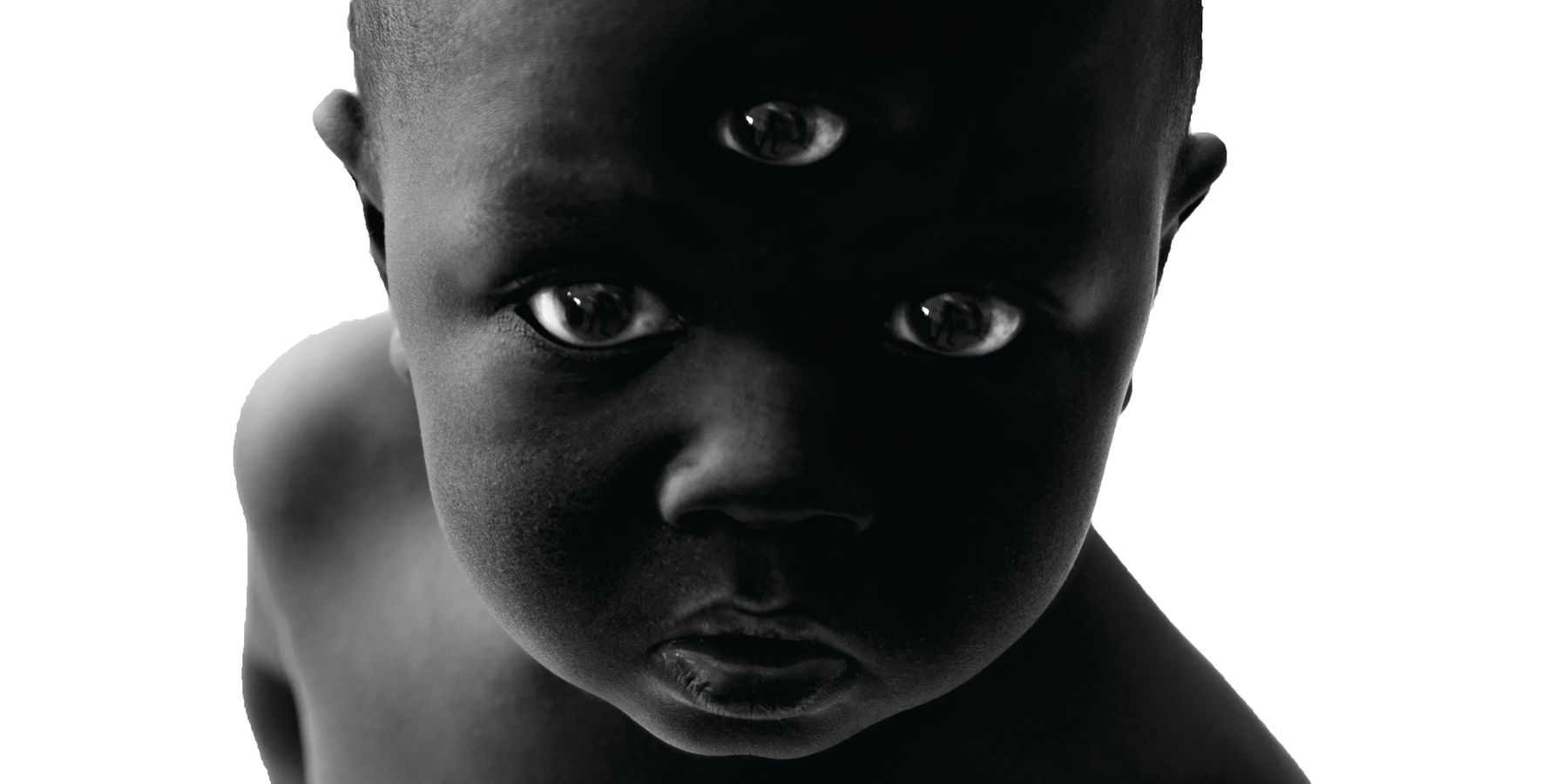
Multi-media artist, musician and filmmaker Damon Davis of St. Louis, Missouri is known for his ability to explore complex topics through multiple mediums, to wide recognition. His 2014 public installation "All Hands on Deck" has been collected in the National Museum of African American History and Culture, and Whose Streets?, an award-winning documentary Davis co-directed following the murder of Michael Brown in Ferguson premiered at Sundance in 2017. Davis' new work, Darker Gods of the Low Hanging Heavens, is a truly multi-disciplinary project that reimagines stereotypes and tropes both projected onto and borne of Black culture as new mythologies. Using film, illustration, sound, photography and the written word to construct a new world of interconnected supernatural beings and deities, Davis creates a new environment that both highlights western fears and obsessions with Blackness and offers a new lens through which to reclaim identity.
PAPER caught up with the artist at Art Basel Miami, where Darker Gods showed as part of "Our Basel" by Smoke Signals Studio, which highlights work by artists bringing attention to local issues.
DD: The basic point of the Garden of the Low Hanging Heavens is basically a place where heavens hang so low that you can touch God or you could go to a place where Gods are. In the garden there's eleven different deities.
And why eleven?
I don't know it's just the number I slapped on. The idea is for me to personify to deify different attributes of Black culture and the tropes or universally accepted social norms for Black people accepted by our sins [unclear 01:21]. And I wanted to either negate these different myths of violence or accentuate them, but either way I wanted to turn it up and tell what was like God. So I like to think of this as narrative therapy. The more you tell it, the story that gets told is what shapes you. So I think different stories might just be beautiful for mental health [I think that's what he says but unclear]. For me personally and all people that come from the same conditions. So let's get back here. So this kid right here is Blake the Great, he's the god of creativity and so he's where blues and jazz and hip-hop comes from, and they crash and slang and it's all these things. But I guess easily appropriated but you could separate these the culture from black people [unclear 02:19]. In the story and in the gallery guide I actually wrote the actual story from this about these different characters so people will know what each one will mean.
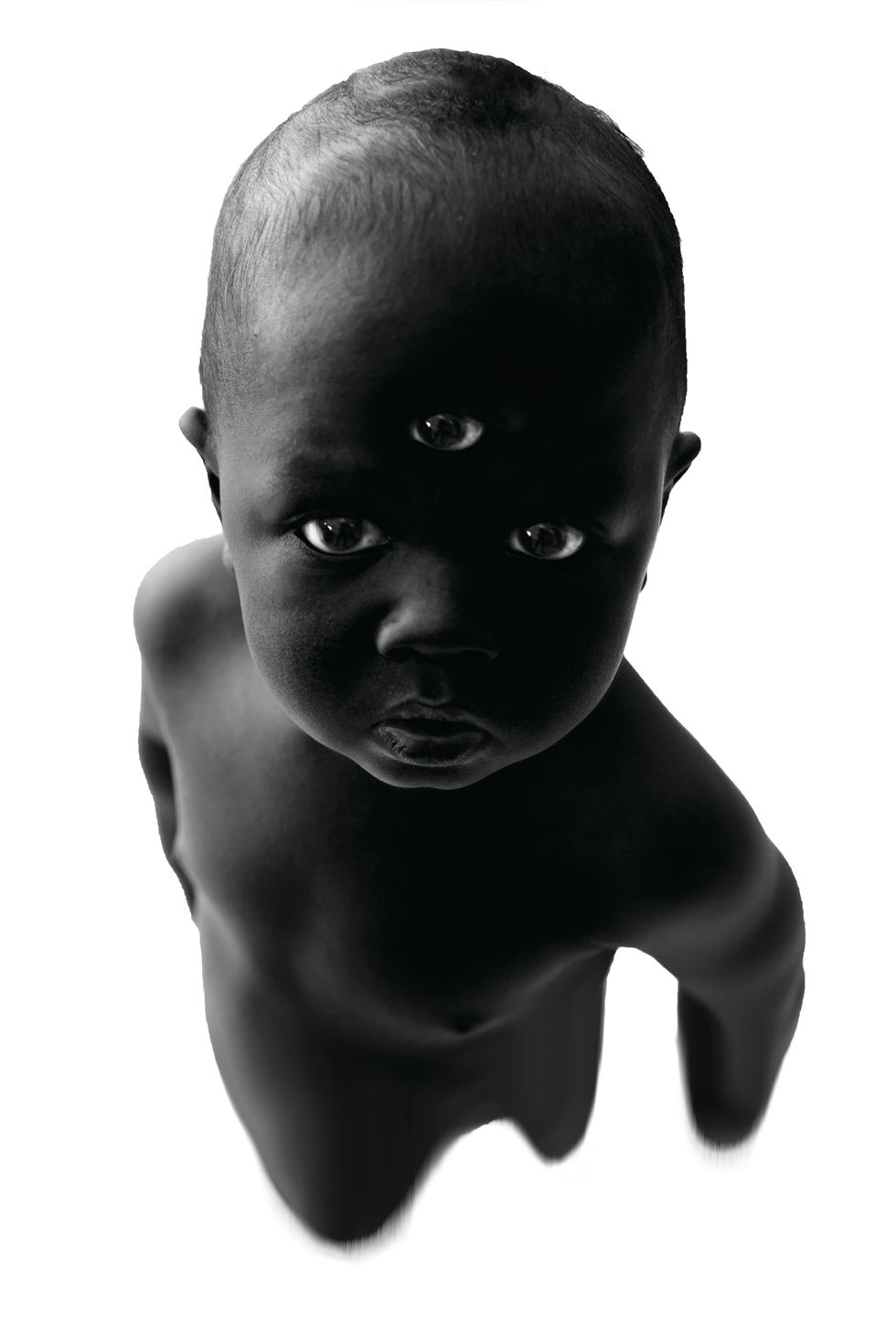
And so the eleven were they based on stories or you were saying myths that you already had in your mind or things you created originally or both?
So the myths that I play with are like the single mom with all these kids––
So like tropes and stereotypes?
Exactly, the absentee father, the drug dealers, the angry Black women, all of the shit that people say about Black people and then trying to play around with them. And other ones I even play around with different stuff like Black masculinity and reimagining what power is, because it's an exercise of talking about power. The people that tell the story about you had the power to tell it. So when you get the power to tell the story about yourself, what do you say? The stories that you tell, especially to little kids, inform who they are going to be when they grow up. Everything that we do around us is based on myths and mythology — we don't use that language, but everything from gender to race. I thought if I could play around with that idea in different ways, it would give people the freedom to choose. When people are always telling you that you ain't shit and you actually fit into one of these things, it's powerful to see a different portrayal of your actual life. A lot of people don't want to think about the backstory or anything like that, and that's why I wanted to play with the mythology around the situation.
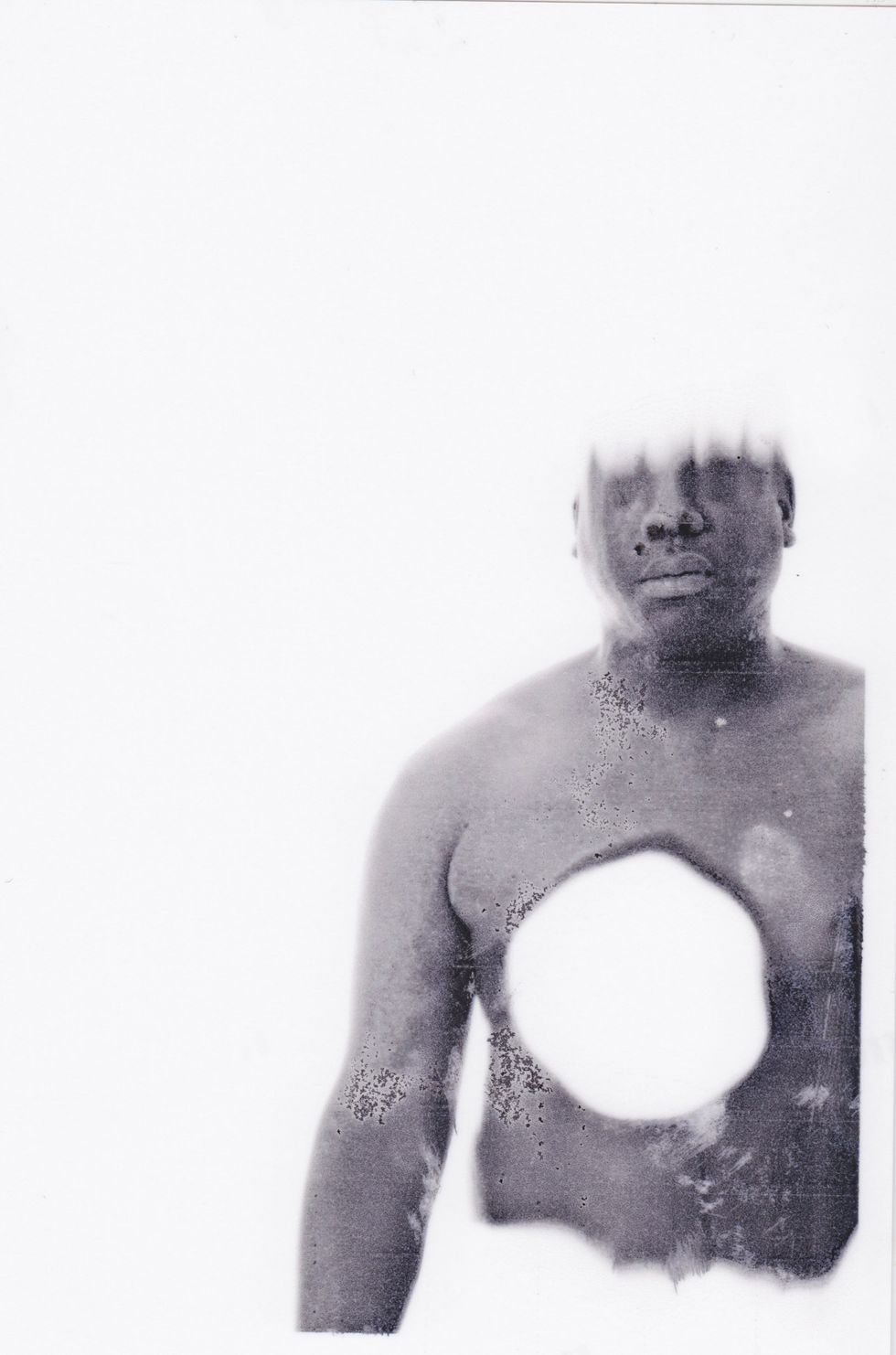
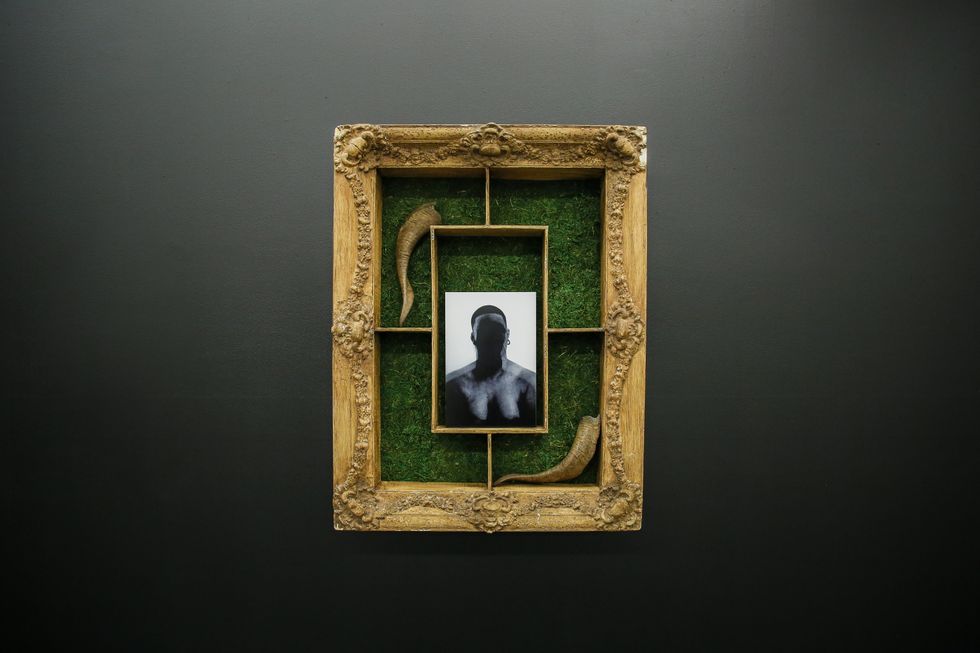
I'm curious about your relationship to archetypes and fables and myths, were these things that you were always thinking about or when did that become something that you wanted to focus on?
For one, I grew up in a super Catholic household and my mom grew up in Louisiana so that shit was everywhere.
I'm Catholic too.
Yeah so you know, little shrines and a bunch of like figurines and just imagery. And I've been an artist my whole life, and that's the first shit I'm seeing. So a lot of that is stories and if nothing else, the stories in the Bible are amazing, amazing stories. I really liked the idea of getting some real complex, thematic stuff across through simple stories. The movies that I like are like, Terry Gilliam and Guillermo del Toro, people that do things with mythology and rearrange it. I just think it's a great way to explain the world. It's rooted in spirituality, and Black people are rooted in spirituality. With the treatment and the conditions that Black people are under in this country, you've got to believe in something.
Did it feel like flipping all negative stereotypes or tropes on their head or is it a little more complex than that?
Not always, sometimes I think I just turned up those tropes instead of running from them. This is Superior, she's the God of war and so the god of war must [09:21 unclear?] this is a woman right? And so, initially [unclear 09:24] she was this one, she was the oldest of all these children and the big God the mother God [09:37 unclear] and she was the powerful witch. So each one of them had a planet, she helped each one of them with her witchcraft to make their planet and build their planet up. When she needed help though, none of them would help her. She was abandoned by them. So she was so angry at that point that she split in two and then that God comes out, the God of war. So it's the idea that we did this trope about the mad Black woman, loud ghetto Black woman but nobody thinks about the trauma like that you are a single mom and you got a bunch of kids, like who wouldn't be pissed? Who wouldn't be pissed in these circumstances? So instead of running away from it like now get some validity to the feelings that these people have because some of the best people I've ever met have been single mothers. So I was just like I don't know so much about flipping it on the head or just turning it up. We're changing the angle of what you see. It's a very rigid box that people get put into and there's never any explanation and it's a lot of times that people don't care to understand.
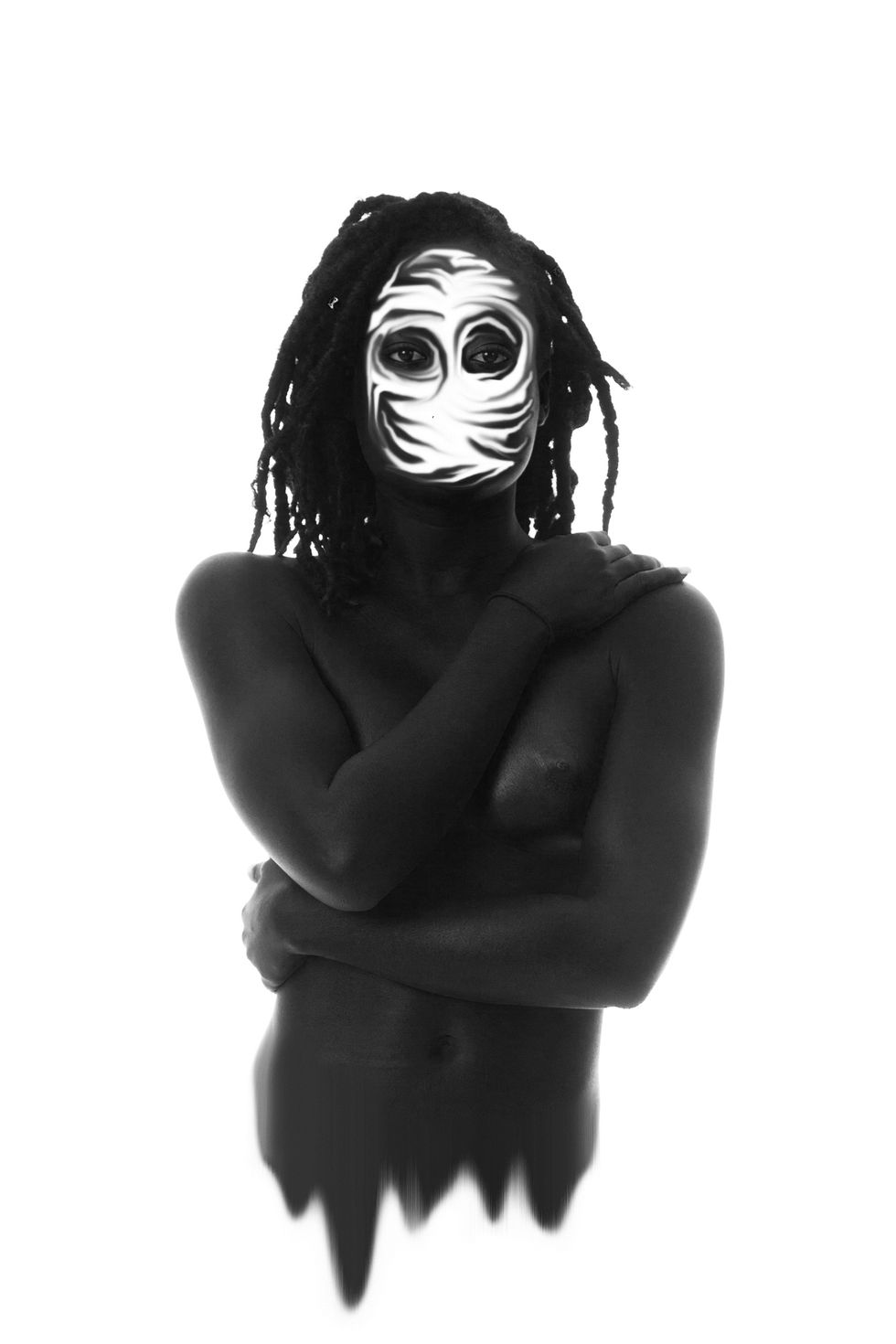
And in this world you've created, or universe, so all of them are connected it sounds like they all know each other.
Yeah so the first God is like the mother so each one of those is a birth, each one of those faces, so that's nine children. So that's ten with her, because she created her partner, which is Papa Rosco––like the bible just the other way around because it makes more sense women are the only people who can have kids. So instead of like [11:24] from Magdalene and all that shit, like she got bored and so she made someone to hang out with and that makes a lot more sense to me. It's like a family so yeah they're all connected but they all [come from one root? 11:39].
Who are you hoping to speak to the most with this project?
My focal point is speaking to communities of color or just the disenfranchised. I think there's something for women who feel like they've been left out, and queer people, and that's the thing I wanted: to talk to a wide section of Blackness. Because there are certain people who get erased from the whole story. We're talking about humanity; it's just humanizing people who don't get to be humanized and giving complexity and nuance to lives that you never cared to hear about.
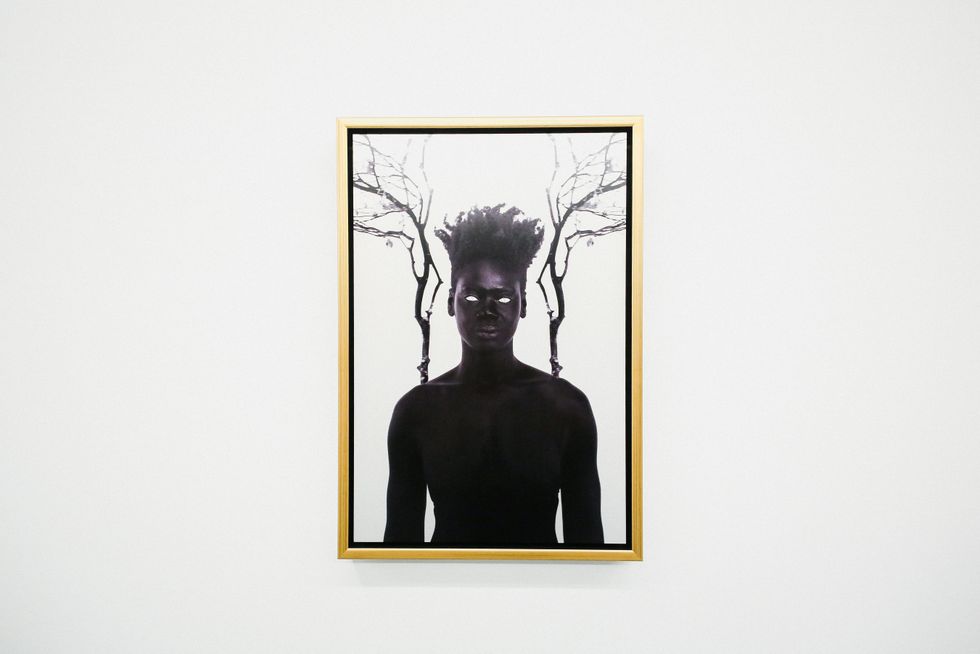
It's interesting that we have to take things to this supernatural level to humanize them.
Initially this project was called "Whole Human," and it was about the fact that Black people are not seen as whole beings in society. It's always the supernatural, like Lebron, something that nobody else can do, or subhuman, below. So I kept thinking, maybe I should just skip over the middle part and just go straight to the superhuman, because I think for some reason it resonates more easily.
Going back to your process a little bit, when you're coming up with these stories, did you write them?
Yeah and I call myself a [unclear 13:46] because I don't, it's about telling stories and I do a bunch of shit, so like whatever medium is necessary to get the story across is what I use. While I was creating these images, I was creating an album, I was creating the music with it, and I was listening to music while I was working on photos, and then I'm writing stories out while I'm writing the music, so it's all happening at once to build the universe, build a big [unclear 14:09].
And then where does Black Lives Matter come in?
Patrice is a true friend to me and so Black Lives Matter, the organization, and Smoke Signal studios here in Miami, these are just my homes right and people that I've been working with since the inception of it popped off. We were in Ferguson — I'm from St. Louis — and that's how I met a lot of these people. So we partnered together because we were all down here doing something, and we wanted to come together and do some grassroots shit for our people and the people that's usually shut out of these art spaces. So at Art Basel [unclear 15:15] started with Smoke Signal a few years ago.
MORE ON PAPER
Music
We Partied With KATSEYE and HUNTR/X at UMG's Grammys Party
Story and photography by Vincenzo Dimino